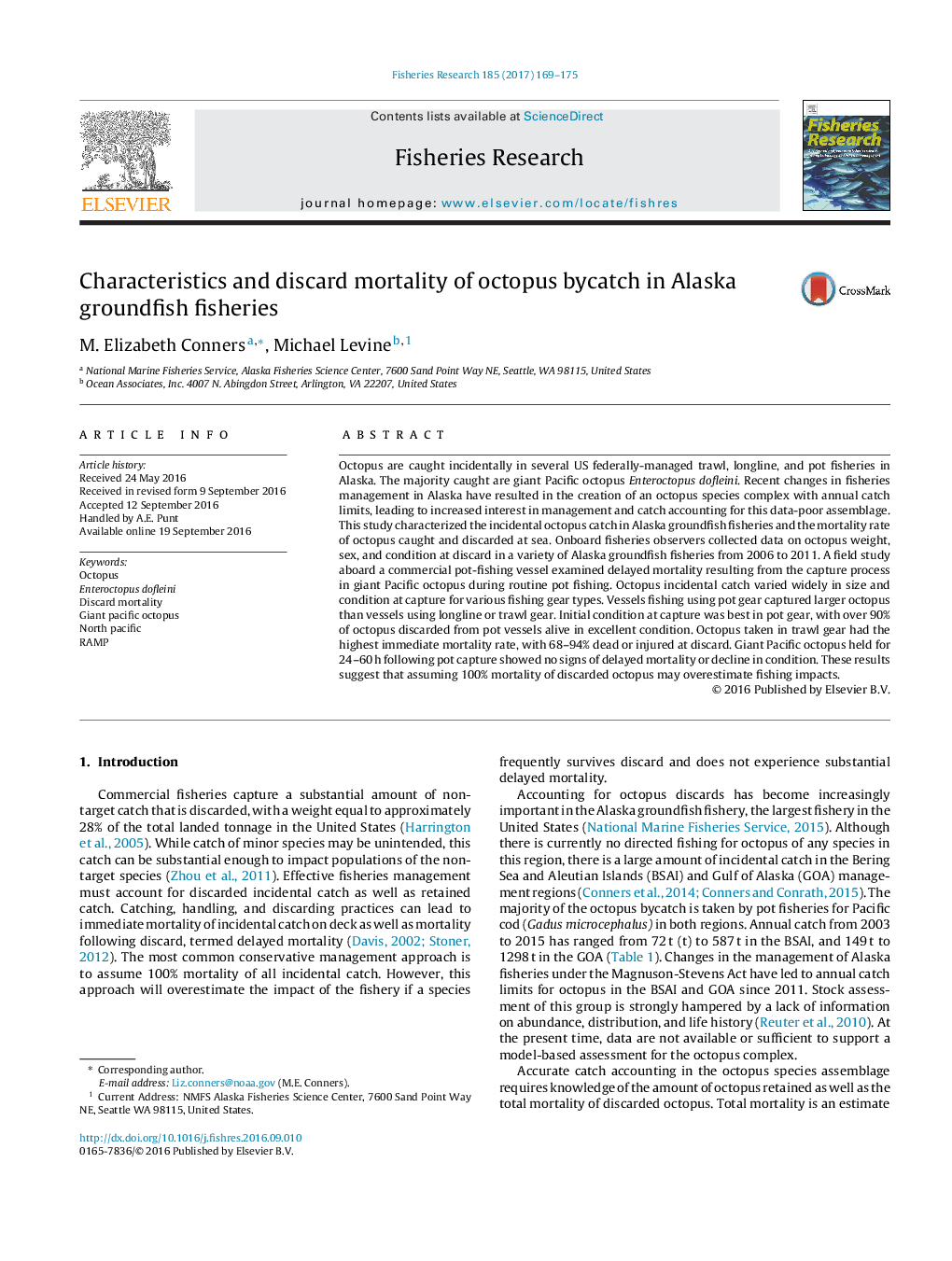| Article ID | Journal | Published Year | Pages | File Type |
|---|---|---|---|---|
| 4542652 | Fisheries Research | 2017 | 7 Pages |
Octopus are caught incidentally in several US federally-managed trawl, longline, and pot fisheries in Alaska. The majority caught are giant Pacific octopus Enteroctopus dofleini. Recent changes in fisheries management in Alaska have resulted in the creation of an octopus species complex with annual catch limits, leading to increased interest in management and catch accounting for this data-poor assemblage. This study characterized the incidental octopus catch in Alaska groundfish fisheries and the mortality rate of octopus caught and discarded at sea. Onboard fisheries observers collected data on octopus weight, sex, and condition at discard in a variety of Alaska groundfish fisheries from 2006 to 2011. A field study aboard a commercial pot-fishing vessel examined delayed mortality resulting from the capture process in giant Pacific octopus during routine pot fishing. Octopus incidental catch varied widely in size and condition at capture for various fishing gear types. Vessels fishing using pot gear captured larger octopus than vessels using longline or trawl gear. Initial condition at capture was best in pot gear, with over 90% of octopus discarded from pot vessels alive in excellent condition. Octopus taken in trawl gear had the highest immediate mortality rate, with 68–94% dead or injured at discard. Giant Pacific octopus held for 24–60 h following pot capture showed no signs of delayed mortality or decline in condition. These results suggest that assuming 100% mortality of discarded octopus may overestimate fishing impacts.
